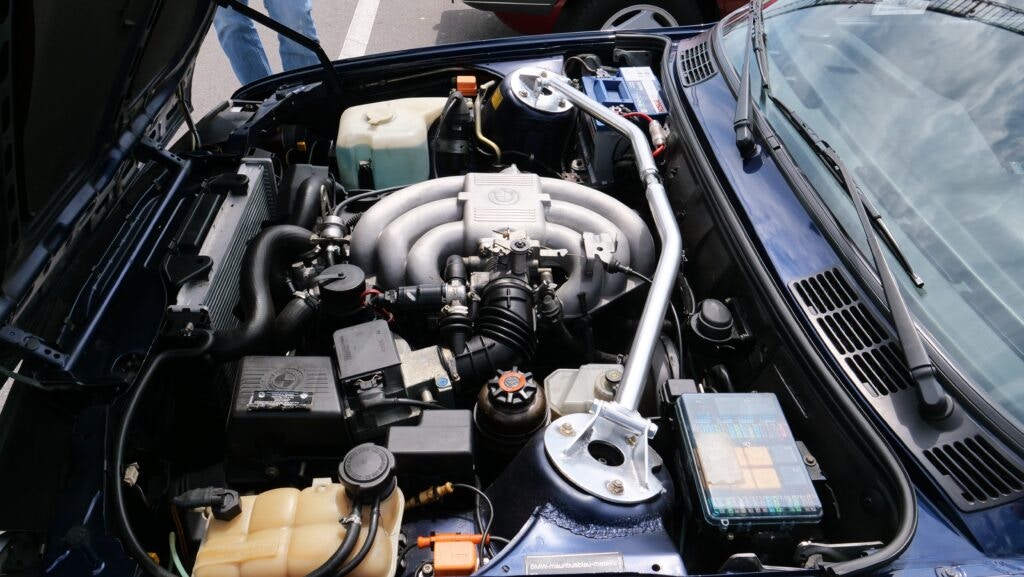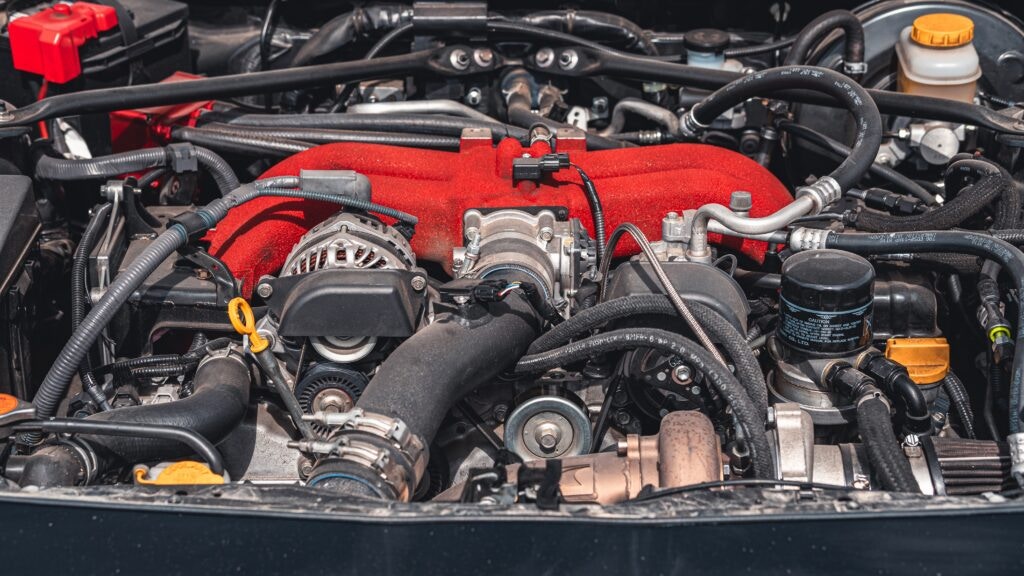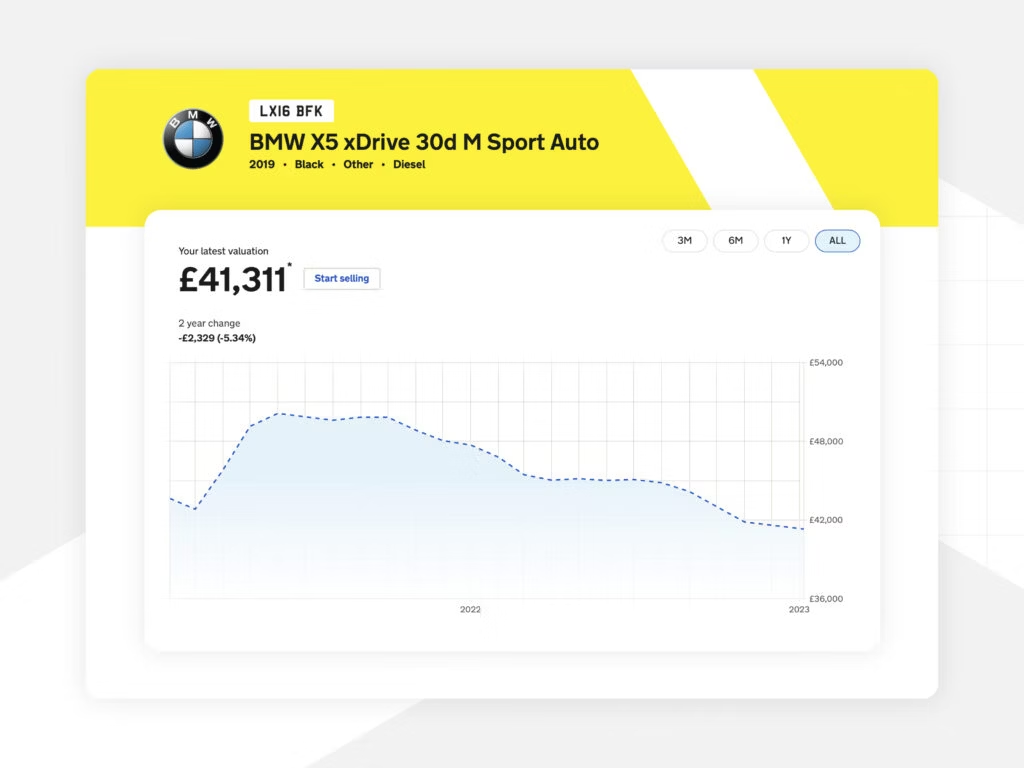How much does it cost to replace a car radiator?
If your engine is hot, you’ve got a problem. Most likely a radiator problem. A critical component in your car’s cooling system, the radiator ensures optimal engine temperature to keep your car running smoothly. If you notice that your engine is overheating, pull over immediately for both your and your vehicle’s safety.
It’s important to tackle radiator issues head-on. The first step is determining if your faulty radiator merits repair or a full replacement. The part’s importance in your car’s cooling system makes it relatively expensive to fix.
The second step is to take action. On average, radiator replacement ranges from £150 to £900, with your location in the UK greatly impacting fees. However, without maintenance, you could be looking at problems that categorise your car as a write-off. Whether you’re fixing up your vehicle or planning to sell your car, read on for a comprehensive overview of radiator replacement.
- Does a damaged radiator affect my car’s value?
- Radiator replacement cost factors
- Additional cost considerations
- Professional vs. DIY radiator replacement
- FAQs

Does a damaged radiator affect my car’s value?
Yes, damage to your radiator will most likely contribute to your car depreciating a little faster than average. However, the extent to which it’s devalued can vary widely depending on:
🚩 Extent of the damage: If the radiator damage is the only issue and it’s repaired without affecting other parts under your hood, the impact this will have on your valuation may be minimal. However, if this replacement is part of a larger issue affecting your engine or cooling system, the devaluation could be more significant.
🚩 Car model and age: Newer cars can still retain good value after a radiator replacement, while high-value or luxury cars with some mileage on them might depreciate faster with any degree of damage. Older cars might see a steeper devaluation with any radiator issues, as buyers may worry about repeat faults.

🚩 Repair history: If the radiator damage is properly repaired and documented, this may have a lesser impact on your vehicle’s value compared to a car with a history of recurring radiator issues.
🚩 Market demand: The impact on depreciation can also depend on the demand for your specific make and model in the used car market.
🚩 Professional diagnosis: To get an accurate idea of your vehicle’s value based on its condition, consult a mechanic or car valuation service. It’s key to check how slow or fast your car is depreciating over time, and there are free tools available to track your ongoing value such as our Car Value Tracker.
Overall, while a damaged radiator could affect the value of your car, it is unlikely to be the sole determining factor. Repairing it promptly and maintaining records of the repair work can help minimise the impact on the car’s value and help you get the best price whenever you decide to sell your car.
Radiator replacement cost factors

Location
The cost of replacing a car radiator varies based on regional pricing trends. Urban areas and regions with higher living costs in the UK may experience elevated service charges and parts prices.
Obtaining quotes from local service providers ensures a more accurate estimate tailored to your specific location.
See below for typical radiator replacement pricing in top UK metropolitan areas. To note, these numbers are speculative; talk to your mechanic for a more accurate quote.
| UK location | Average cost range |
| Belfast | £170 to £780 |
| Birmingham | £190 to £820 |
| Bristol | £185 to £800 |
| Cardiff | £180 to £790 |
| Edinburgh | £175 to £800 |
| Glasgow | £170 to £750 |
| Leeds | £175 to £780 |
| Liverpool | £175 to £790 |
| London | £200 to £900 |
| Manchester | £180 to £800 |
| Newcastle | £180 to £810 |
| Sheffield | £170 to £780 |
Car make and model
Your car’s make and model significantly influences radiator replacement fees. High-end or luxury vehicles often require specialised radiators, contributing to a higher overall expense. Conversely, common models may have more affordable replacement options.
Here’s a pricing breakdown for some of the most popular car brands in the UK:
| Car manufacturer | Average radiator replacement cost range |
| Audi | £450 to £1,100 |
| BMW | £400 to £1,000 |
| Ford | £200 to £700 |
| Honda | £250 to £800 |
| Mercedes-Benz | £500 to £1,200 |
| Toyota | £200 to £700 |
| Volkswagen | £350 to £900 |
Parts quality
The quality of radiator replacement parts directly impacts the overall cost. Opting for Original Equipment Manufacturer (OEM) radiators generally incurs higher expenses than choosing aftermarket alternatives, however both will cost you a pretty penny.
Balancing the quality of replacement parts with budget considerations is crucial for cost-effective and reliable radiator replacement.
Complexity of replacement process
Vehicles with intricate engine designs or those that require removing additional components to access the radiator removal may necessarily require higher labour charges for radiator replacement.
Additional cost considerations
Coolant replacement and system flush
Regular coolant maintenance is essential for optimal radiator, and therefore engine, performance. When replacing your radiator, you can also replace your vehicle’s coolant and have a full system flush. The expense for new coolant and the service to flush the system vary, typically ranging from £50 to £150. Consult your mechanic for more accurate pricing.
Professional installation
Professional labour charges significantly contribute to the overall cost of radiator replacement. Skilled technicians charge varying rates based on experience and the complexity of the installation process, however a good gauge is £80 to £150 per hour for labour alone.
Professional vs. DIY radiator replacement

Should you not want to pay for professional installation, DIY radiator replacement is another option. We explore the pros ✅, cons ❌, to keep in mind:
| Professional replacement | DIY replacement |
| ✅ Expertise – Professionals bring specialised knowledge, ensuring precise and efficient radiator installation. | ✅ Learning experience – Replacing your own radiator can enhance your automotive knowledge and skills🚩However, this can be a complex task. Consult a mechanic or qualified professional to avoid further damage to your vehicle. |
| ✅ Parts selection – Ability to choose specific parts for your radiator replacement. But, the parts will be limited to garage availability and pricing. | ✅ Parts selection – DIYers have the freedom to choose specific parts or aftermarket options based on personal preference. |
| ✅ Time efficiency – Skilled technicians can fix a car radiator leak swiftly, getting you back on the road faster. | ✅ Flexible Schedule – DIYing allows you to work at your own pace. However, this could mean more time until your radiator is successfully replaced and you’re back behind the wheel. |
| ✅ Quality and safety assurance – Professionals use high-quality materials and follow industry installation standards, guaranteeing a durable and reliable radiator. | ❌ Lack of quality and safety assurance – Lack of professional training may pose safety hazards to yourself and your vehicle during installation, potentially impacting your car’s overall value and functionality. |
| ✅ Warranties – Professional garage repairs and replacements often include warranties, giving you peace of mind. | ❌ Lack of warranties – DIY work most likely does not come with professional warranties on replacement – and, in fact, may not be covered by your insurance policy. |
| ❌ Cost – professional replacement can run a higher fee than DIY. | ✅ Cost savings |

FAQs
Can I drive my car if the radiator is broken?
The short answer: no. Driving with a broken or leaking radiator risks severe engine damage. As soon as you notice an issue, tow your car to prevent further complications.
What is the cost of fixing a radiator leak?
Costs vary for radiator leaks. Simple fixes may be between £50 and £200, while complex issues could range from £200 to £1,000, depending on severity and parts needed. Depending on the cost, even if your car is otherwise in great condition, your insurer may class your vehicle as a category write-off.
Is it cheaper to replace or repair a car radiator?
It’s often cheaper to repair a car radiator with minor fixes usually costing £50-£200, but extensive damage often means you need a new radiator and this can be more costly.
How long does a car radiator last?
Typically, radiators last 8 to 15 years. Regular maintenance and timely repairs can extend radiator lifespan.
How can I track the value of my car?

A faulty car radiator can impact the value of your car overall. But what if you don’t know your vehicle’s value in the first place?
All cars depreciate at varying rates, but there’s no one rule guiding their changing values. That’s where Motorway’s Car Value Tracker tool comes in. The Car Value Tracker provides a free, reliable monthly price alert for up to six vehicles at once.
This free car valuation helps you choose the best time to sell and make informed choices about investments in your car’s maintenance.
Need to sell your car?
Want to learn more about owning, maintaining, and selling your car? Check out more of our guides here, covering everything from Clean Air Zones to car tax, and plate changes to part exchange.
- Sell my car
- Track your car value
- What are the most expensive parts of a car to replace?
- Car anatomy: what are the parts of a car?
- How much does it cost to replace a gearbox?
- How much does it cost to replace a car engine?
- How much does it cost to replace a car suspension?
- How much does it cost to replace brake pads?
- How much does it cost to replace a windscreen?
- How much does it cost to replace a head gasket?
- How much does it cost to replace a cambelt?
- How much does it cost to replace a car battery?
- How much does it cost to replace a car door?
The information provided on this page is for general informational purposes only and should not be considered as professional advice.